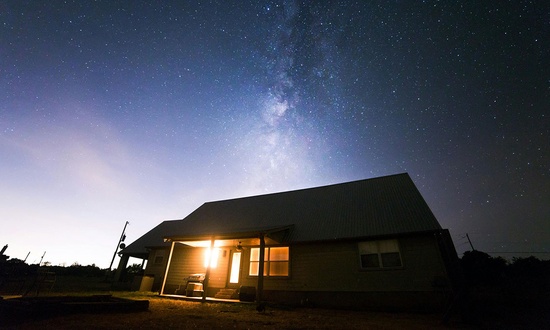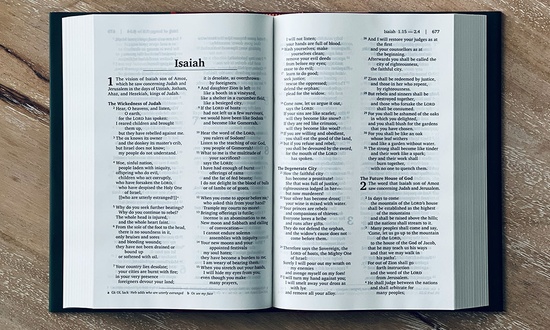The millennium is an interesting subject. It’s also a theological lightning rod, one which I didn’t want to be a center of attention in my book Heaven. This is why I dealt with it there only briefly. As I say in the book, the focus of our attention should be on the New Earth, which is the center of our eternal dwelling place and our rule as God’s children. Regardless of our differing beliefs on the millennium, it is possible for us to agree on the nature of God’s New Earth.
For those who don’t have my book Heaven (and as a reminder for those who do), I’m including immediately below the brief section on the millennium. I’m following that with a link to a much larger article by Michael Morrison. I find his treatment to be fair and thoughtful, and I agree with his recommendation of books for those desiring to further study this issue. I also agree with his conclusion about the importance of not making the millennium the center of our theology, and not allowing it to distract from the biblical emphasis on the New Earth.
From Heaven by Randy Alcorn
The Question of the Millennium
Many have reduced the coming reign of Christ on Earth to a thousand year millennial kingdom on the old Earth. As a consequence, they have failed to understand the biblical promise of an eternal reign on the New Earth. Because of this, it’s necessary for us to take a closer look at the Millennium, which has been the subject of considerable debate throughout church history.
Revelation 20:2-8 refers six times to the Millennium, describing it like this:
- The devil is bound for a thousand years (v. 2);
- For a thousand years, the nations are no longer deceived (v. 3);
- The saints come to life and reign with Christ for a thousand years (v. 4);
- The rest of the dead don’t come to life until after the thousand years are ended (v. 5);
- The saints will be priests and kings for a thousand years (v. 6);
- Satan will be loosed at the end of the thousand years, and he will prompt a final human rebellion against God (vv. 7-8).
Theologians differ over whether the Millennium should be understood as a literal thousand-year reign and when it will occur in relation to the second coming of Christ. Christians generally hold one of three views about the Millennium: the postmillennial view, the premillennial view, or the amillennial view.
From a postmillennial viewpoint, Christ’s Kingdom is spreading throughout the world, and God’s justice will prevail across the earth prior to Christ’s return. After his reign is established through his people for a long duration (not necessarily a literal thousand years), Christ will physically return to an already utopian world.
From a premillennial viewpoint—which would include much of dispensational theology and the teaching of a variety of scholars throughout church history—the Millennium will be a literal thousand year reign of Christ, which will begin immediately upon his return when he defeats his enemies in the battle of Armageddon. During these thousand years, God’s promises of the Messiah’s earthly reign will be fulfilled. Redeemed Jews will live in their homeland, and (according to some teachings) the church will govern the world with Christ. The Millennium will end with a final rebellion, and the old Earth will be replaced by, or transformed into, the New Earth.
From an amillennial viewpoint—including most Reformed theology and the teaching of many scholars throughout church history—the Millennium isn’t a literal thousand years, nor is it a future state. Rather, the events depicted in Revelation 20:3-7 are happening right now as Christ’s church reigns with him over the earth, in victorious triumph empowered by his death and resurrection. The saints rule over the earth from the intermediate Heaven, where they dwell with Christ.
Theologians who hold to amillennial or premillennial viewpoints differ on specific details even within their own camps. For instance, according to dispensational premillennialism, the Rapture will occur prior to the Tribulation, and both will occur prior to the final return of Christ to Earth. According to historic premillennialism, the Rapture is an inseparable part of Christ’s single, physical return to Earth, which will occur after the Tribulation. [An excellent book in which biblical scholars present and respond to differing views of the Millennium is The Meaning of the Millennium (Downers Grove, Ill.: IVP, 1978), edited by Robert Clouse.]
Though I don’t believe the case for postmillennialism is strong (either biblically or in light of human history), both premillennialism and amillennialism have many biblical points in their favor. I personally believe there will be a literal thousand-year reign of Christ on the present Earth, but I also understand and respect the strong interpretive arguments that have been made in support of amillennialism.
Although the Millennium is a subject of interest to many, it’s not the subject of this book. I mention it only to point out that our beliefs about the Millennium need not affect our view of the New Earth. The Millennium question relates to whether the old Earth will end, and the New Earth will begin, immediately after the return of Christ, or a thousand years later after the end of the Millennium. But regardless of when the old Earth ends, the central fact is that the New Earth will begin. The Bible is emphatic that God’s ultimate Kingdom and our final home will not be on the old Earth but on the New Earth, where at last God’s original design will be fulfilled and enjoyed forever—not just for a thousand years.
Note from Randy: This article, "Three Views of the Millennium" by Michael Morrison, is one I found helpful. Read what he says on the premillennial view and you may be convinced it’s right. Then read what he says on the amillennial view and you may be convinced it’s right. This demonstrates that he does a good job of fairly representing these positions. I agree with his recommendation of The Meaning of the Millennium, edited by Clouse.
Photo: Unsplash




